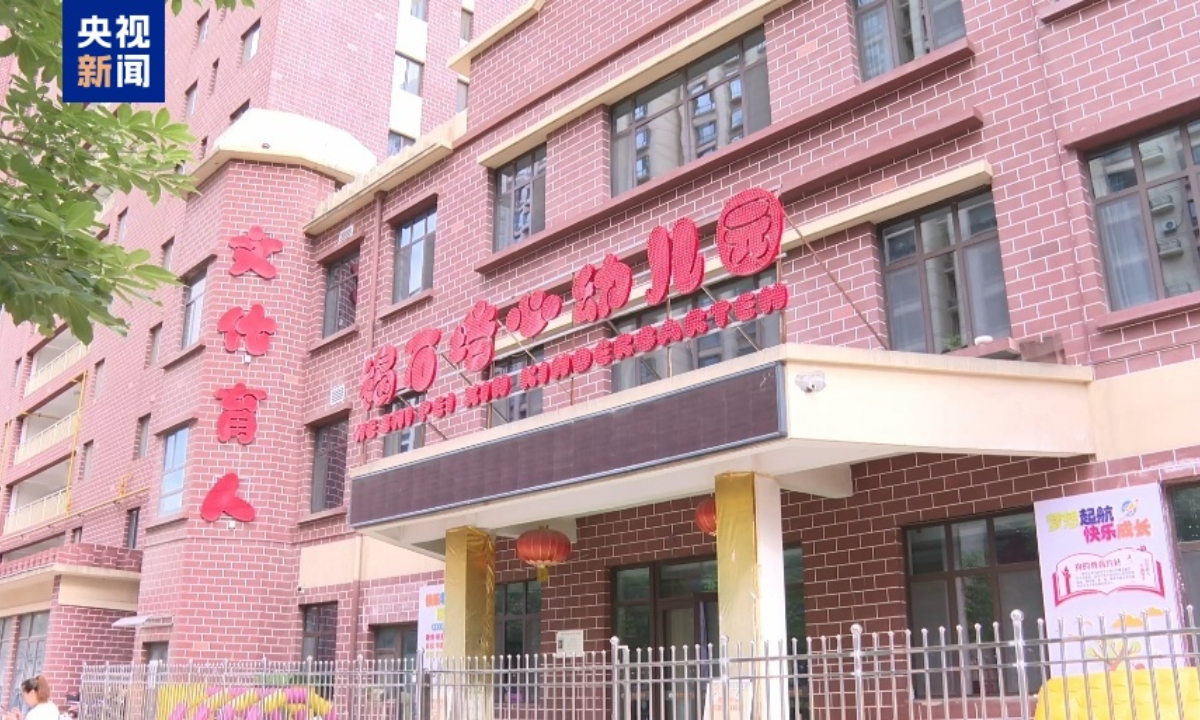Earlier this month, the market management authority and police in Maiji district, Tianshui city, Gansu province, received reports that several children at the Peixin private kindergarten had abnormally high blood lead levels. Parents reported symptoms including stomach aches, leg pain, loss of appetite, and hair loss.
Police launched an investigation and by evening had completed health checks on all 251 children attending the kindergarten. The results revealed that 233 children had elevated blood lead levels.
 |
Outside the Peixin kindergarten in Maiji district, Tianshui city, Gansu province, northwest China. Photo: CCTV |
Outside the Peixin kindergarten in Maiji district, Tianshui city, Gansu province, northwest China. Photo: CCTV
Of the 223 food samples tested at the school, two failed to meet standards: three-color date sponge cake served for breakfast and sausage cornbread rolls served for dinner. The lead content in these cakes was 1,052 mg/kg and 1,340 mg/kg respectively, significantly exceeding the national food safety standard limit of 0.5 mg/kg.
According to local officials, 201 children have been hospitalized and are receiving free medical treatment.
"We are deeply saddened that this incident has caused physical and emotional harm to the children and parents of Peixin kindergarten. We will learn from this experience", local officials said.
The kindergarten, established in 2022, is currently under investigation. Authorities have detained 8 people, including the principal and investor. Preliminary findings suggest the principal and investor instructed kitchen staff to purchase food coloring from online marketplaces and dilute it for use.
Food safety has improved in China following a series of scandals, including the 2008 tainted milk powder incident. However, inspections by authorities in 2022 revealed that safety issues are most prevalent in the catering industry and agricultural products.
Huyen Le (Reuters, China Daily)












